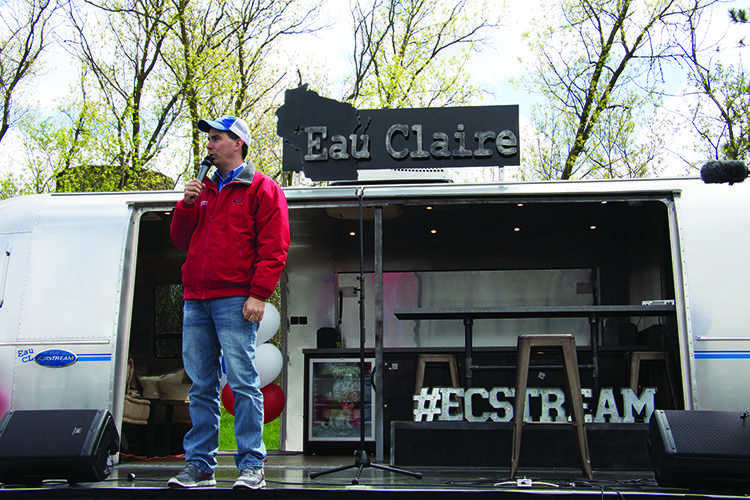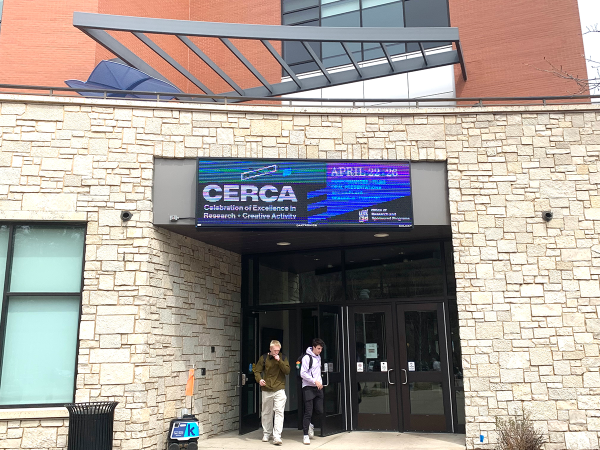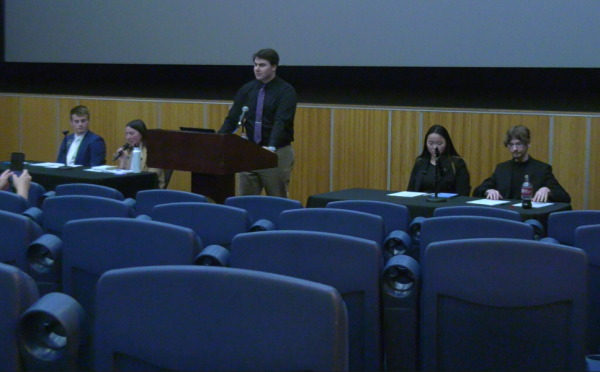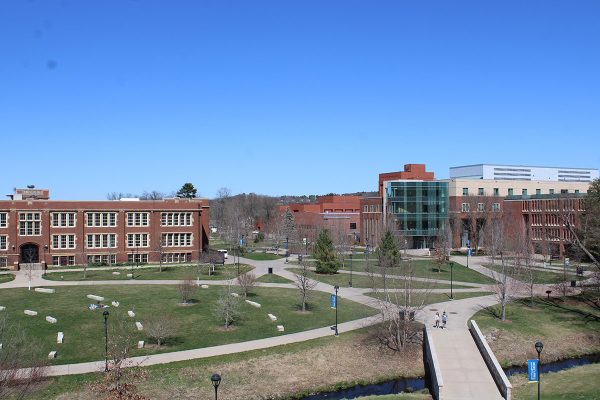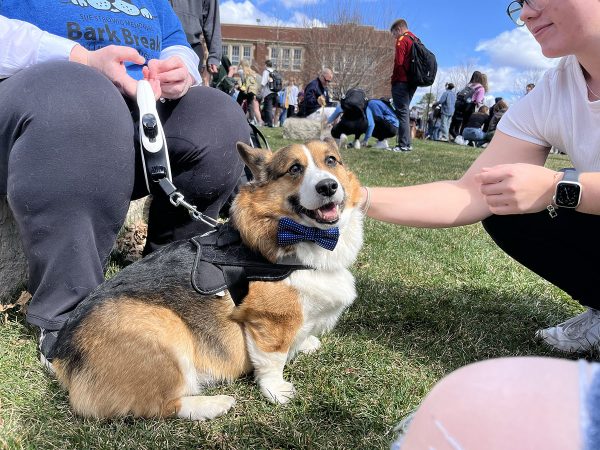Governor Walker promotes tourism
Wisconsin’s tourism economy growing while state parks lose state funding
More stories from Andee Erickson
Photo by Andee Erickson
Gov. Scott Walker celebrating National Travel and Tourism Week as he announces the 2015 impact tourism has had on Wisconsin’s economy on April 29 at Visit Eau Claire.
Editor’s Note: Erickson and Lenzmeier are enrolled in Zeitler’s tourism geographies course.
With tourism spending up to nearly 4.5 percent in Wisconsin last year, Gov. Scott Walker said the tourism industry keeps more than 190,000 employed throughout the state.
“This is incredibly important for 190,000 people and the families,” Walker said. “They represent tourism as a key part of the state’s economy and we want to keep it growing.”
Walker and Stephanie Klett, the secretary of the Wisconsin Department of Tourism, joined Visit Eau Claire on April 29 to recognize the effect tourism has on Wisconsin’s economy.
After Walker took office in 2011, he increased the tourism budget to invest more in marketing the state’s tourist attractions, Klett said. Last year, for every dollar invested in tourism $8 was returned, she said.
Walker also mentioned the role Wisconsin’s natural resources have in drawing tourists in, including state parks, which lost all state funding last year. As the tourism demand increases in Wisconsin, Walker said increased fees should keep the parks self-sustained with the help of changes the DNR will implement in the management system.
“We have one of the lowest prices for park-like attractions in the country and so we think it makes sense to have a reasonable cost to pay for the services of the park,” Walker said.
Christopher Pedretti, section chief of the DNR’s Bureau of Parks and Recreation, said Wisconsin State Parks saw a record-breaking number of visitors last year at 16.3 million despite the increased fees last summer. Annual admission passes increased $3, while electrical camping fees doubled, according the DNR’s website.
In the first fiscal year of the new state budget, Pedretti said it’s too soon to know if the increased fees will be enough to close the funding gap left after the cuts.
“We’re looking at more efficient ways of doing things and reducing expenses,” Pedretti said. “Whether that be through the use of technology and other alternative methods of managing the properties.”
George Meyer, executive director of the Wisconsin Wildlife Federation, has spent over 40 years working in conservation, including the DNR, and said state parks need a substantial amount of maintenance the current increase in fees won’t address.
With the success of state parks dependent on weather, Meyer said funding rooted in user fees wouldn’t keep a self-sustained park afloat in a season of poor weather.
“If you start getting a lot of rainy weather in June, then attendance goes down and that’s just the way outdoor camping goes,” Meyer said.
Associate professor of geography Ezra Zeitler teaches a course on tourism geographies and has previously spent three summers working for Northern Highland-American Legion State Forest in North Central Wisconsin.
State parks provide a reasonably priced vacation destination that should be affordable to everyone, Zeitler said, but their financial success is becoming more dependent on the fees users pay after the state cut total funding.
“I see this era in which we inhabit this major ideological shift in how state parks are managed, and I’m worried about the long term consequences of the shift.” Zeitler said. “I’m cautious about the long term impacts, I’m worried that people may get priced out.”
Wisconsin’s strong environmental history, which feature luminaries such as Aldo Leopold and the founder of Earth Day, Gaylord Nelson, is now being challenged, Zeitler said. He’s concerned artificial amenities might be added to parks to gather user dollars, while taking away from the purpose of the park.
While the growing tourism sector in Wisconsin keeps thousands employed, junior geography student Allie Lenzmeier said she thinks cutting state funding to state parks will cause the younger population to move out of the state.
“In the name of conservation in Wisconsin it’s an awful move I think, especially because young people care about conservation,” Lenzmeier said. “ … I want to be living in a place that protects their state parks and protects their nature.”

